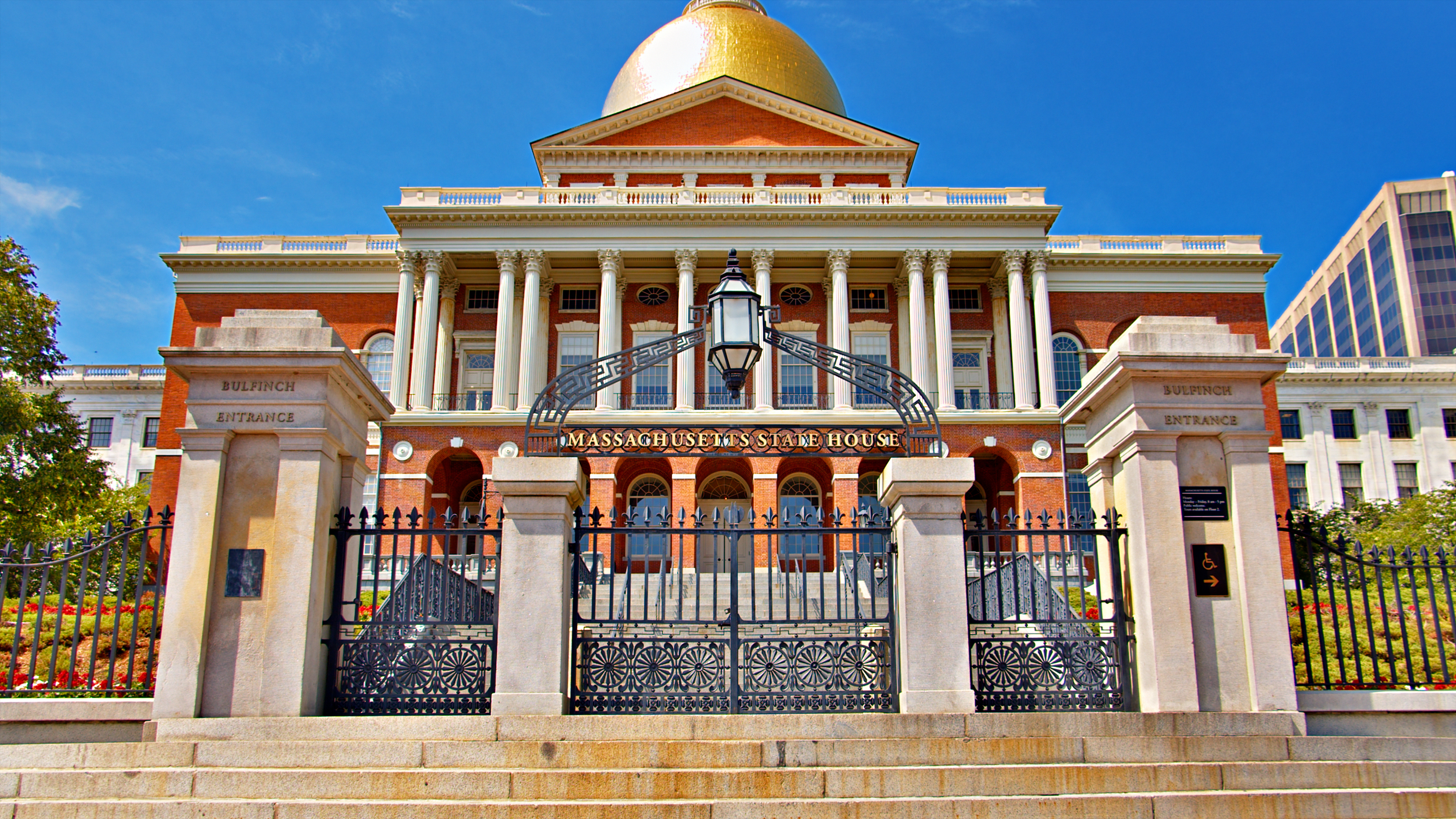Partygoers were treated to a fireworks show at the stroke of midnight in Boston, marking the end of a year and the beginning of many new laws and leaders in Massachusetts.
Laws that went into effect on Jan. 1 include the first state tax cut in more than 20 years. Gov. Maura Healey's billion dollar tax cut package is the most generous child and dependent care tax credit in the country. It eliminates two-dependent cap and increases credit from $180 per dependent child, disabled adult or senior to $310 for 2023 and $440 in 2024.
"We're gonna need it," said Douglas MacConnell, a soon to be father of two.
MacConnell has been looking forward to the governor's tax cuts taking effect. He and his wife need any help they can get moving forward.
"I said I'll strictly work because it's just so expensive. Pretty much her paychecks will be going to childcare," he said, and he's not alone.
Leslie Lopez had to cut her hours to take care of her mother and her daughter.
"There's a lot of families that I know personally that are like, I'm struggling to pay my rent, it's either I pay my rent or I pay my bills," Lopez said.
Other tax credits include earned income tax, senior circuit breaker tax and student loan repayment assistance.
There's also good news for renters when it comes to rental reduction, as the tax cut package increases the cap from $3,000 to $4,000.
"It needs to happen," Trever Schwichtenberg said. "It’s just this should’ve happened like five years ago."
"I don't want it because it ends up coming out of my pocket in the end," Susan Peacock said. "I'm old, I'm on a limited income and I'm fine with that. Don't give me more and don't take anymore."
"I don't feel that way. No I don't," Pamela Ewing said. "Because when it's all said and done I mean a lot of people working two and three jobs, so Boston's expensive to live."
Dental reform, which was on the last election ballot, goes into effect, forcing insurance carriers to put more of premium pay into patient care rather than pocketing it. Massachusetts is the first state in the country to regulate dental insurance premiums.
Also, residents will see a two-week extension of the deer and turkey hunting season.
While talking with NBC10 Boston about saving and spending, many people brought up minimum wage. It's not changing in Massachusetts. It will stay at $15 an hour, which used to be the highest in New England. Connecticut now takes the lead at $15.69.
As for the new leadership, four newly-elected members for the Boston City Council officially started in their new roles on Monday: Ben Weber, Enrique Pepén, John Fitzgerald and Henry Santana.
"I think people are going to be proud of who is representing them on the council at least that’s my hope," Weber said at the swearing-in ceremony on Monday.
"I think it’s a fresh breath of air on a new year. We're going to start working together, get to know each other and just serve the city because at the end of the day we may all serve different districts but it’s a small city, we all serve the same residents," said Pepén, who won the District 5 seat away from the embattled incumbent accused of multiple ethics violations.
The 13-member council also elected Ruthzee Louijeune as president on Monday. Louijeune is the first Haitian-American to serve on the council. Her priorities include affordable housing and fixing the public school system.
"I think being president is such an honor but there's also challenges as well because you're no ones boss you're just trying to lead the council in the right direction," Louijeune said.
The new council promises to stay on track and stay away from scandal. Boston Mayor Michelle Wu said she's hopeful this is the start of a new chapter for the city.
"I really even today sense the level of dedication and partnership and just wanting to make sure we move things forward for our residents," said Wu.
The next meeting of the Boston City Council is Jan. 10.



